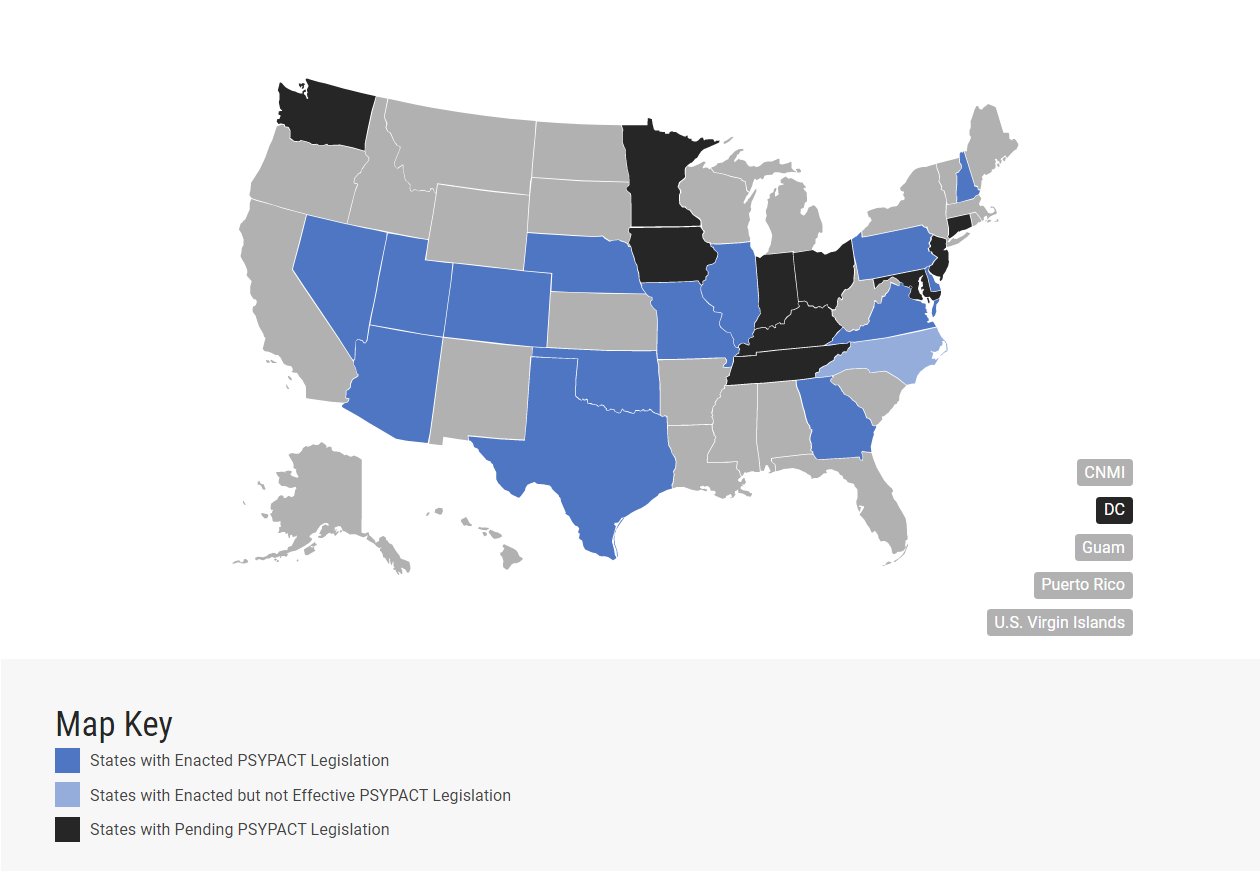
February 11, 2021
Texas Was Ready
When Texans in need of mental health services began quarantining, they turned to virtual counseling (a.k.a. telepsychology) to stay well. If not for Texas state employees, those seeking telepsychology may not have found so many options.
Texas has long maintained that a mental health patient traveling in Texas could reach their local mental healthcare provider over phone or video means. The Lone Star State even offered temporary licenses to out-of-state practitioners whose clients wound up in Texas. If a Texan crossed the Red River into Oklahoma, however, only practitioners licensed in the Sooner State could provide care. Under federal policy, each state decides how to license for their telepsychology services.
“Many other states do not provide these same [temporary licensing] opportunities to Texas psychologists. Instead, to practice in another state, Texas psychologists must obtain and pay for dual-licensure or move to the state in which they wish to practice,” noted a 2019 Texas Sunset Advisory Commission report prepared by Robert Romig, Janet Wood, and Jennifer Jones—all state employees. The Sunset report pointed to our state’s growing shortage of mental health care providers. Given economies of scale, rural areas are disadvantaged in the competition to keep psychologists.
How can Texas keep its psychologists and ensure expanded access to mental health services? Members of the Association of State and Provincial Psychology Boards (ASPPB) came to their board concerned with the licensure and certification of telepsychology across state lines. To overcome these issues, ASPPB recommended creating an interstate compact, the Psychology Interjurisdictional Compact (PSYPACT).
People in states enacting PSYPACT Legislation can receive telepsychology services from any member states, so long as the provider carries an “E.Passport'' administered by PSYPACT. With an E.Passport, providers avoid the hassle of dual licensure and presumably feel less pressure to move out of their state. With each administered E.Passport, Texans would find greater access to telepsychology. Heeding a unanimous vote by the Texas State Board of Examiners of Psychologists and Sunset Commission recommendations in 2016 and 2019, Texas legislators agreed our state should sign on.
Ever the role model, Texas became the largest early adopter of telepsychology through PSYPACT. The map of states now joining PSYPACT suggests geographically diverse, bipartisan support to follow. This effort makes sense in a global pandemic. In the past year alone, Connecticut, Indiana, Iowa, Kentucky, Maryland, Minnesota, Ohio, Tennessee, and Washington all introduced PSYPACT Legislation, while North Carolina, Pennsylvania, and Virginia enacted theirs.

Texas enacted PSYPACT well before the pandemic. Yet, action required more than legislation. There are state employees responsible for seeing PSYPACT through.
We spoke with one state employee, Patrick Hyde, to understand his work as the PSYPACT Commissioner for Texas. Hyde practiced regulatory law for the State Board of Examiners of Psychologists, which would later become the Texas Behavioral Health Executive Council. He says he is motivated by seeing good things come to fruition. Lately, that means PSYPACT.
Hyde’s role at the Behavioral Health Executive Council involves directing psychologists to apply for E.Passports if they want authority to practice interjurisdictional telepsychology. The U.S. Department of Health and Human Services awarded CARES Act funds to ASPPB, which waived the $400 E.Passport application fee until January 31, 2021. When we spoke in December, Hyde reported 794 processed E.Passport applications of 2000 submitted. 142 list Texas as the home state. A different license for temporary practice received 60 applications. 13 were from Texas. Given there were 14 states participating in PSYPACT, Texas is well represented thanks to these efforts.
The famous Schoolhouse Rock video “How a Bill Becomes a Law'' does not speak to how a law becomes a reality. There are over 140,000 Texas state employees on the frontlines or supporting those on the frontlines of this COVID-19 pandemic. Patrick Hyde and other employees at the Behavioral Health Executive Council and the Sunset Commission make possible such promising policies as PSYPACT. We cannot know how many lives PSYPACT saved or will continue to save, but we can say that state employees’ role in its becoming makes them Essential Texans.
Though the events of this past week show that Texas can’t be ready for everything, it’s important we not discount the labor of state employees helping us weather each storm: repairing and maintaining roads and highways, caring for sick patients, providing emergency services, protecting wildlife, and so much more. We are honored to advocate for the Essential Texans who have stepped up during this and many crises before.
Sources:
Behavioral Health Boards Staff Report with Final Results
We spoke with Patrick Hyde on 12.03.20
Screenshot from Map - Psychology Interjurisdictional Compact on 1.20.21

